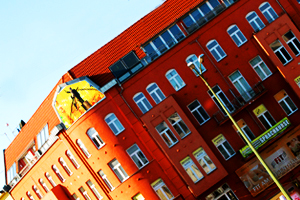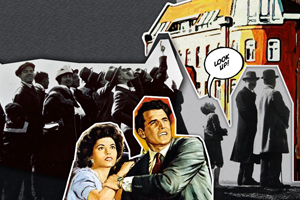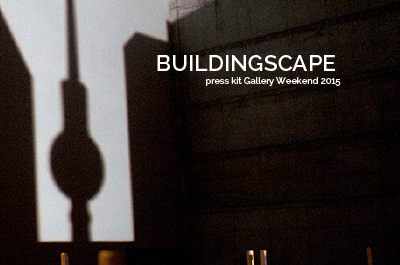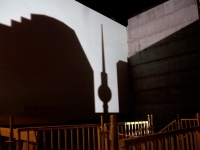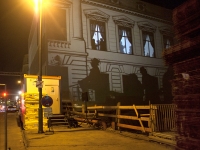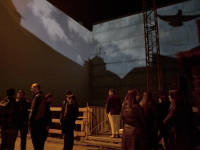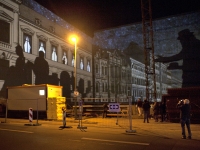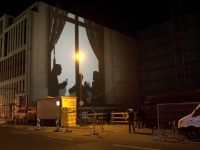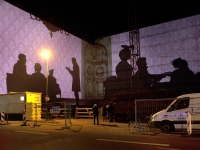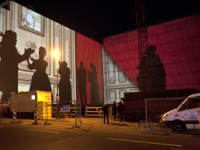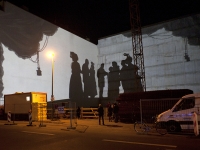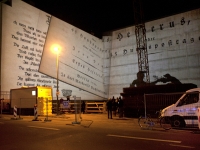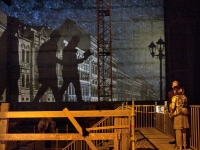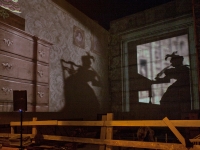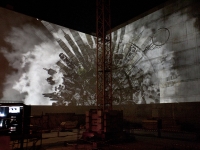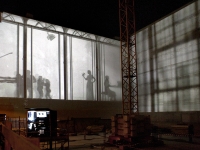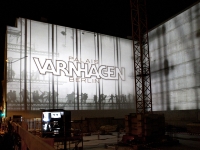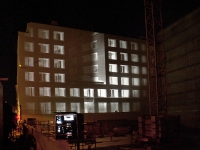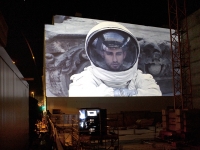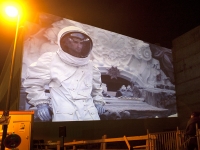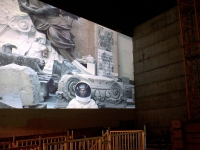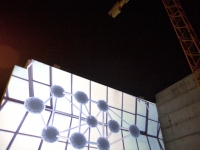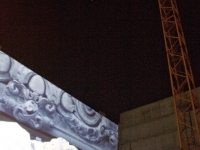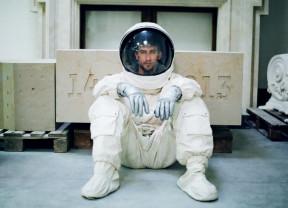
Premiering on Berlin Gallery Weekend!
1st & 2nd of May
9:00pm – midnight
Projected on the facade at Französische Straße 56-60, Berlin
(the future Palais Varnhagen)
Click HERE for more information and full program of events >>
Atara, 2015
Video installation by Amir Fattal
The video installation Atara is dealing with different layers of the concept of resurrection in the context of German history. It combines together a reversed version of the Liebestod aria from the opera Tristan Und Isolde by Richard Wagner and images taken at the workshop of the Berliner Stadtschloss in Spandau, where the new Baroque-style stone facade is being constructed for the rebuilding of the Stadtschloss. The word ‘Atara’ in Hebrew means crown, which is used in a famous Talmudic expression meaning “to restore to it’s former glory“.
The video Atara is dealing with a process that is taking place ‘out of time’ or ‘out of space’, in this case bringing the historical narrative of creation and destruction into the context of two buildings that used to stand at the same place in Berlin: the Berliner Stadtschloss and the DDR’s Palast der Republik. The parallel story of these two buildings brings together different epochs in the political history of Berlin, while their aesthetics reflect the changing ideologies that they used to represent. Atara is asking the question: what does it mean to build a Baroque style palace in the year 2015?
Atara transforms the artistisinal workshop in Berlin’s Spandau into a space station, and the artists who work there on the creation of the sculptural façade into astronauts. The video follows their technical process and the historical references that they are using in creating a place that was lost 70 years ago. It shows the combination of the old traditional stone carving technique together with the long process of creating the different elements and figures by using old photographs and some of the original remains of the original palace. The process combines sculptung in clay, making silicone molds, plaster positives and later stone carving. The process as a whole becomes a metaphor for the attempt to re-frame the historical events that took place in Germany during the 20th century, and the ongoing attempt to transcend into a new era.
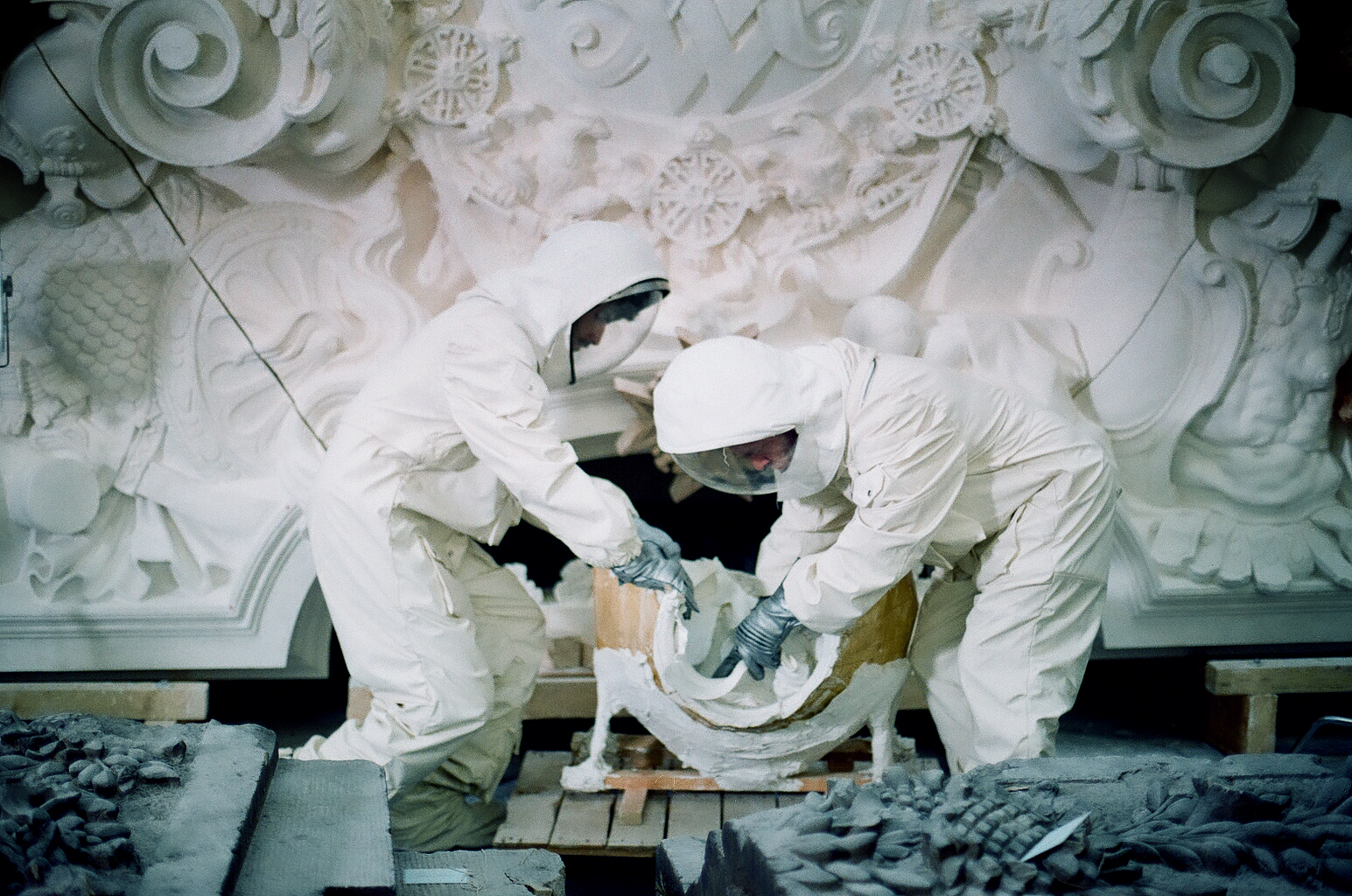
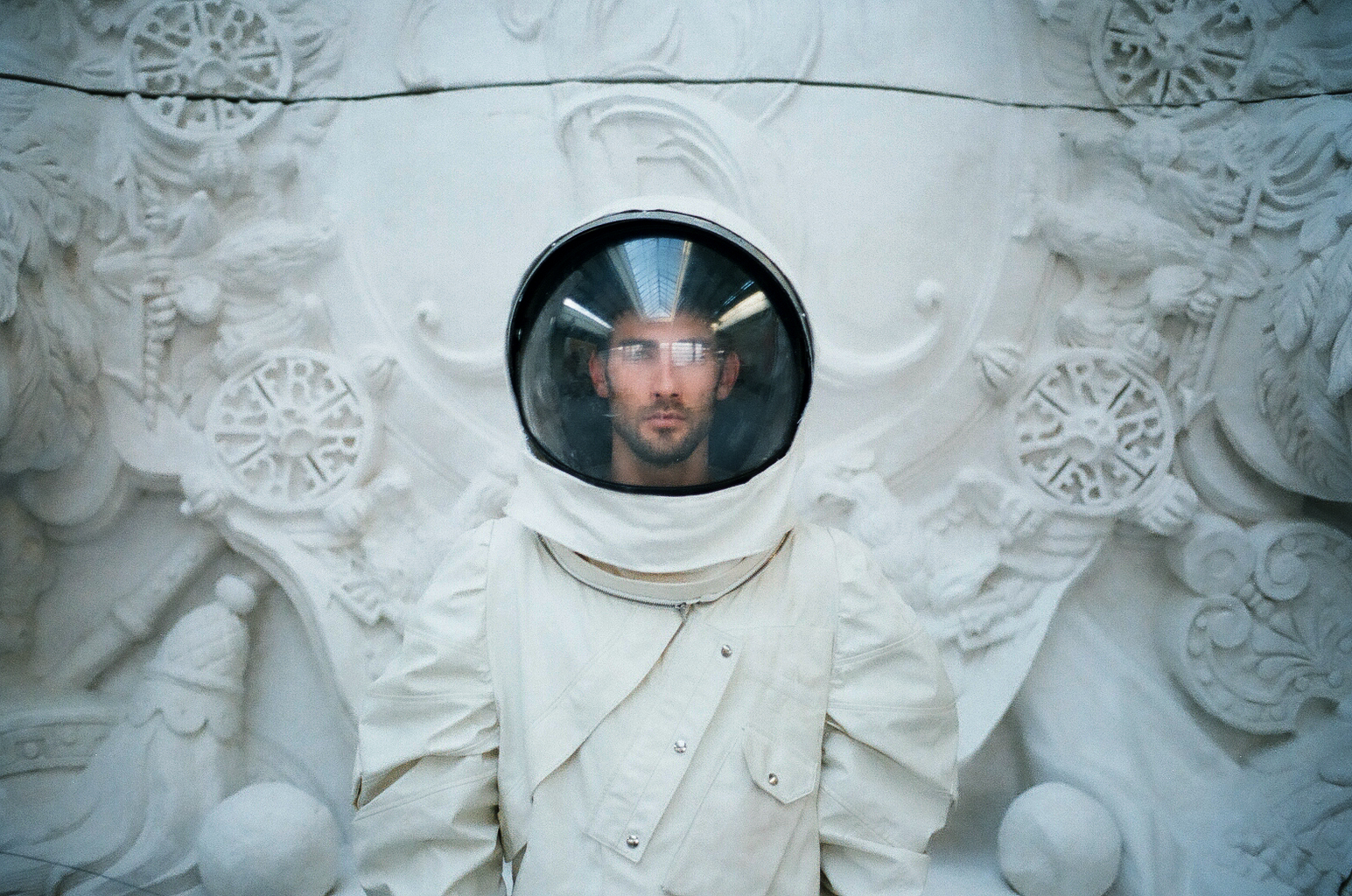
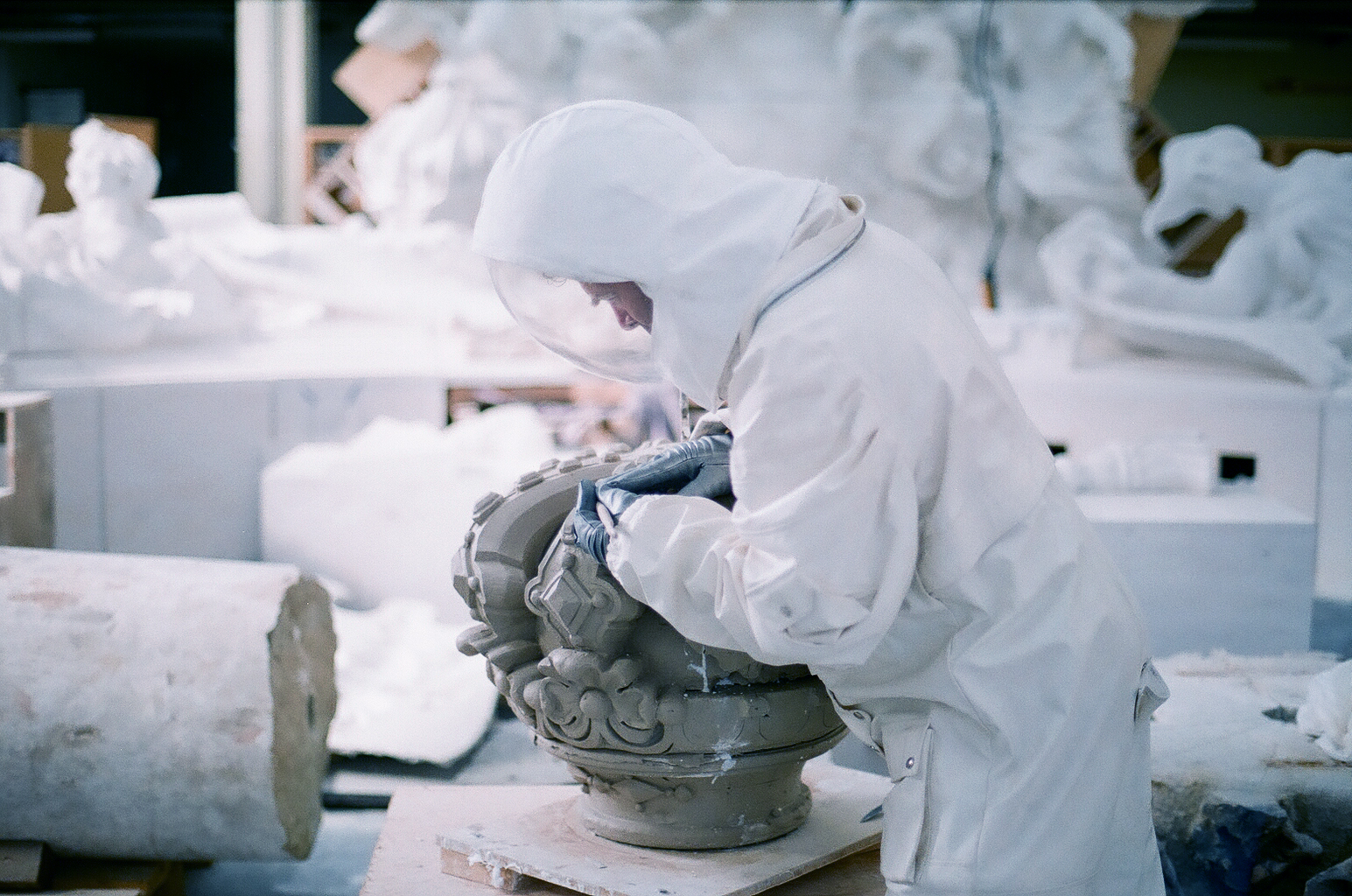
Amir Fattal was born in Israel in 1978, and is currently based in Berlin. Fattal graduated from Universität der Künste, Berlin, in 2009, and is a conceptual artist whose practice is one of historical reflection grounded in the history of aesthetics and cultural schisms. Fattal’s overarching concerns are the cultural connections between Germany and Israel – countries inexorably linked through their history, memory, culture, architecture, and the geographical diaspora which resulted in mass migrations, transposing cultures to new and different nations. The territory of Israel was once part of the Ottoman Empire, and then later administered by the British, yet the very creation of Israel is the legacy of the failed attempt to start the new Third Reich.
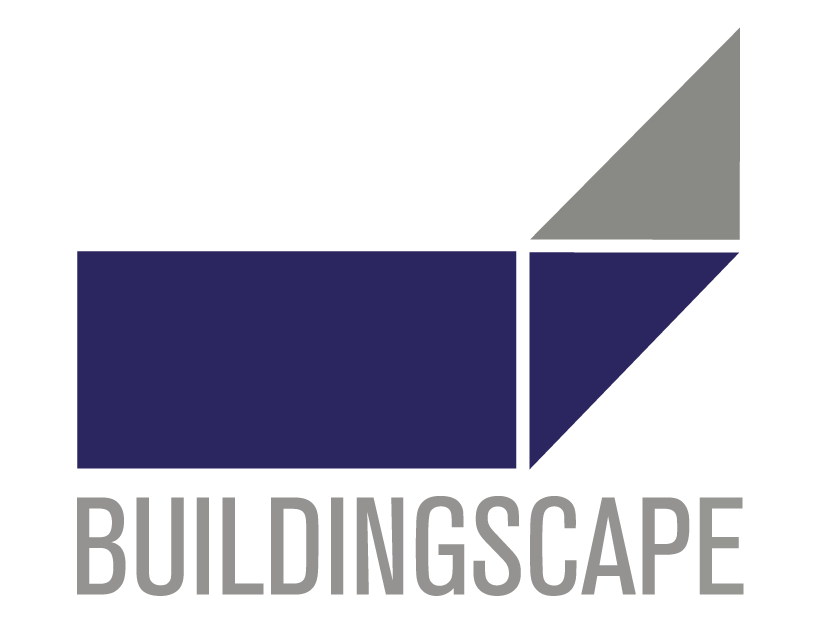
BuildingScape is a Berlin-based company that develops artistic, architectonic and urban media interventions and concepts to accompany and promote the construction process of pivotal European building projects. The primary aim is to transform what is often perceived to be a social inconvenience in the form of major construction sites into living urban interventions that creatively address the process of urban transformation and development. With this frame of thinking, BuildingScape addresses the building of future architectural and cultural icons within their immediate and broader social context. To achieve these objectives, BuildingScape designs innovative artistic interventions within and upon the structures of construction sites, including large-scale video projections in public space, and the commissioning of site-specific works through artist residencies. By bringing contemporary art into direct contact with urban development in public space, BuildingScape transforms the process of construction into cultural and social experience that is as innovative and inspiring as it is entertaining and educational. BuildingScape was founded in 2014 by Can Togay (former Director of the Collegium Hungaricum Berlin), David Szauder (artist and curator), and Thomas Hölzel (collector and developer).


 Back to Homepage
Back to Homepage